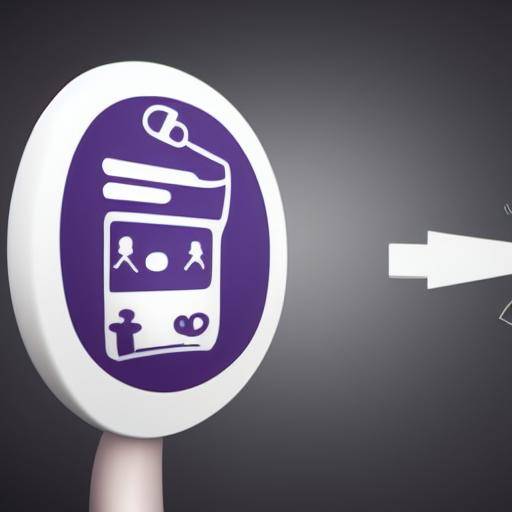
Self-assessment is a key tool in the process of prioritization for personal development. In this article, we will thoroughly explore the crucial role of self-evaluation in decision-making, the establishment of goals and individual growth. We will discover how self-evaluation directly impacts our ability to effectively prioritize, as well as its influence on the development of personal skills. From its historical origin to future trends and predictions, this comprehensive guide provides a deep insight into self-assessment and its integration into prioritization.
Introduction
Self-assessment is a reflective process involving the fair and honest assessment of our strengths, weaknesses, values, beliefs and behaviors. By understanding ourselves, we can make informed decisions that are aligned with our goals and aspirations. On the other hand, prioritization is essential for the effective management of time, resources and life goals. The combination of self-assessment and prioritization creates a solid framework for personal and professional development.
History and Background
Self-assessment has deep roots in philosophical and psychological disciplines that go back to ancient civilizations. From Greek philosophers to modern thinkers, the concept of self-knowledge has been the core of the search for wisdom and self-realization. In addition, prioritization has been a recurrent theme in time management and personal productivity in various cultures throughout history. For example, the principles of stoic philosophy offer philosophical perspectives on decision-making and the focus at the core.
In the modern era, psychology and time management have played a crucial role in the evolution of self-evaluation and prioritization. The emergence of practices such as personal coaching and the development of psychological assessment tools has expanded the possibilities of self-knowledge. Likewise, the growing complexity of contemporary life has emphasized the importance of establishing priorities effectively to achieve balance and success.
Deep analysis
The intersection of self-assessment and prioritization offers many benefits, both at the personal and professional levels. Self-assessment provides a solid basis for informed decision-making, as it allows us to identify our strengths and areas of improvement. In addition, in understanding our preferences, values and motivations, we can align our priorities with what is genuinely significant to us.
However, self-evaluation also presents challenges, as it often requires facing aspects of ourselves that can be uncomfortable or difficult to accept. Authenticity and honesty with oneself are fundamental in this process, and may trigger internal tensions initially, but, in the long run, lead to greater coherence and personal satisfaction.
In the current scenario, self-assessment and prioritization trends have experienced significant change due to the influence of the digital era. Time management applications, online personal assessment questionnaires and professional development platforms have democratized access to tools previously reserved for more specialized areas. The awareness of personal well-being and the importance of establishing clear limits has also generated a change in the perception of individual priorities.
Comprehensive review
Self-assessment is applied in various ways in prioritization. In professional environments, performance assessments and personal development plans are based on self-assessment to align individual goals with organizational objectives. Similarly, in the personal sphere, self-assessment serves as a means of identifying what aspects of life are most relevant and meaningful to us, which in turn allows us to set priorities that are in line with our deepest aspirations.
In this regard, self-evaluation also contributes to stress management and the prevention of exhaustion. By being aware of our limitations and needs, we can make informed decisions about the distribution of our energies and resources, avoiding over-requirement and emotional wear.
In the area of personal development, self-evaluation is an invaluable tool for identifying areas of improvement and setting realistic and achievable goals. Clearness in personal priorities allows greater effectiveness in decision-making and resource allocation, which in turn drives growth and achieving significant goals.
Comparative analysis
Self-assessment and prioritization are closely interconnected, both focusing on conscious decision-making and the allocation of limited resources. Self-assessment provides the basis on which priorities are established, as it allows us to discern what aspects of our life are essential to our well-being and growth.
While self-assessment focuses on self-awareness, prioritization refers to the selection and organization of tasks and goals based on their importance and urgency. Self-assessment helps us identify what is important to us, and prioritization allows us to effectively manage our commitments and responsibilities based on that understanding.
In terms of personal development, both concepts complement each other, as self-assessment allows us to identify areas of growth and set significant targets, while prioritization helps us to manage our time and resources to achieve those goals efficiently.
Practical Tips and Recommendations
To effectively integrate self-evaluation into priority setting, it is essential to follow some practical advice:
- Schedule time for self-evaluation regularly, either through personal reflection or the use of psychological evaluation tools.
- Identify and prioritize goals based on the results of self-evaluation, focusing on areas that require attention and development.
- Establish a clear and realistic action plan to achieve the identified goals, assigning resources and time strategically.
- Review and adjust priorities and targets as self-evaluation evolves and circumstances change.
By following these steps, self-assessment becomes a central element in decision-making and prioritization, which in turn drives the personal development process.
Industry Reflections and Expert Reviews
Personal development experts and time management agree that self-evaluation is a key component in setting effective priorities. The ability to identify our strengths, weaknesses and motivations plays a crucial role in defining our priorities and managing our responsibilities.
In addition, psychology professionals emphasize the importance of continuous self-assessment as a catalyst for personal growth. Self-consciousness resulting from self-assessment allows us to make more conscious and aligned decisions with our values and objectives.
Case Studies and Practical Applications
Case studies involving successful integration of self-assessment into prioritization cover various contexts, from business to personal development. For example, companies that encourage reflection and self-assessment among their employees have observed an increase in productivity and job satisfaction, as employees are able to align their personal goals with the objectives of the organization.
In the personal sphere, individuals who have used self-assessment to prioritize their emotional and physical well-being have managed to improve their quality of life and reduce stress. Self-assessment has allowed them to identify areas of improvement in their lifestyle and set priorities that promote their long-term health and happiness.
Future Trends and Predictions
As awareness of the importance of personal development and effective time management continues to grow, the integration of self-evaluation into prioritization is expected to become a standard practice. With the advancement of technology, self-assessment and personal planning tools will become even more accessible and personalized, allowing people to adapt their priorities more effectively as their circumstances and aspirations evolve.
Self-evaluation is expected to be more integrated into educational, organizational and community environments, enriching the decision-making process and strategic planning at all levels. In addition, continuing research in psychology and personal development will surely provide new knowledge and innovative approaches to maximize self-assessment in prioritization.
Conclusion
In conclusion, self-evaluation plays a key role in setting priorities both at the personal and professional levels. By understanding who we are, what is important to us and how we can maximize our potential, we can establish significant priorities that guide us towards success and personal realization.
Self-assessment provides an internal compass that helps us navigate the complexity of our lives, allowing us to make conscious and aligned decisions with our values and objectives. By effectively integrating self-assessment into the prioritization process, we can increase our effectiveness, reduce stress and move towards a more balanced and successful life.
Frequently asked questions
1. Why is self-assessment important in setting priorities?
Self-assessment is crucial for prioritization, as it allows us to identify our strengths, weaknesses, values and motivations, which in turn helps us to set priorities aligned with our goals and aspirations.
2. What are the most effective self-assessment tools for prioritization?
Self-assessment tools may vary depending on individual preferences, but some effective options include personal evaluation questionnaires, guided reflection activities and professional advice.
3. How can I integrate self-evaluation into my prioritization process?
To integrate self-assessment in prioritization, it is advisable to schedule time for personal reflection, use psychological evaluation tools if necessary, identify and prioritize goals based on the results of self-assessment, and establish a clear and realistic action plan.
4. What is the impact of self-evaluation on personal development?
Self-assessment has a significant impact on personal development, as it allows to identify areas of improvement, establish significant goals and effectively manage resources and time to achieve those goals.
5. How to handle the emotional resistance that can arise during self-assessment?
It is common for self-evaluation to trigger emotional resistance, but this is an opportunity for significant personal growth. It is important to practice self-pity, patience and seek the support of trusted people during this process.
6. How do technology trends influence self-assessment and prioritization?
Technological trends have expanded accessibility and customization of self-assessment and personal planning tools. This has made it easier for people to adapt their priorities more effectively as their circumstances and aspirations evolve.
Conclusion
After exploring the importance of self-assessment in prioritization, it is clear that this reflective process is critical for personal development and conscious decision-making. By understanding who we are, what drives us and what our areas of improvement are, we can establish concrete and aligned priorities with our vision of life. This strategic approach enables effective time management, significant goals and improved emotional and professional well-being.
In short, self-assessment is an essential element in setting priorities that directly impact the quality of life and personal and professional success. By using self-assessment in a deliberate and constant manner, we can trace a significant path to growth, realization and balance.






















































